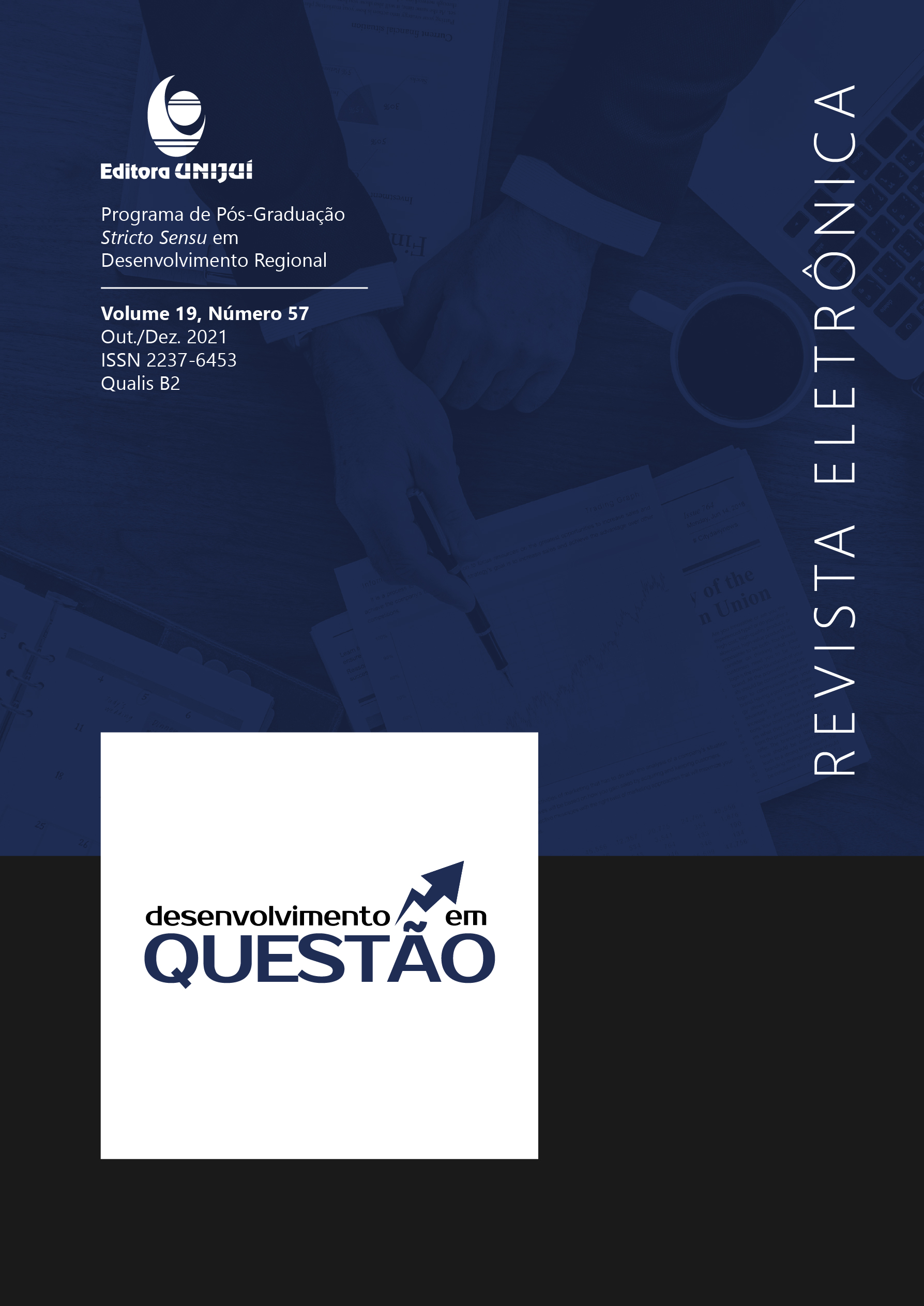THE ENVIRONMENTAL PERCEPTION AND BEHAVIOR OF THE FAMILY FARMER IN THE WEST OF PARANÁ ABOUT THE IMPACT OF THE USE OF AGRICULTURES OF ILLICIT ORIGIN
THE ENVIRONMENTAL PERCEPTION AND BEHAVIOR OF THE FAMILY FARMER IN THE WEST OF PARANÁ ABOUT THE IMPACT OF THE USE OF AGRICULTURES OF ILLICIT ORIGIN
DOI:
https://doi.org/10.21527/2237-6453.2021.57.11746Keywords:
Sustainability. Pesticides of illicit origin. Family farming.Abstract
The present study aimed to identify the family farmer's perception and environmental behavior regarding the impact of the use of illicit pesticides. The research was qualitative, descriptive and exploratory, applied to 365 family farmers in the western region of Paraná. The data collection instrument was the model called Environmental Variable, Consumer Perception and Behavior - VAPERCOM. It was found that family farmers in Western Paraná have a great chance of becoming ecological consumers, with high environmental perception and strong concern about the LCA stages of a product, disagreeing with the weak ecological profile of pesticides of illicit origin. However, economic issues involving prices and costs, lack of knowledge in identifying these products and the highly harmful effects on human health, as well as the environment, can be the main causes for its use in the researched region.
Downloads
Published
How to Cite
Issue
Section
License
By publishing in Revista Desenvolvimento em Questão, authors agree to the following terms:
All works are published under the Creative Commons Attribution 4.0 International License (CC BY 4.0), which allows:
Sharing — to copy and redistribute the material in any medium or format;
Adaptation — to remix, transform, and build upon the material for any purpose, even commercially.
These permissions are irrevocable, provided that the following terms are respected:
Attribution — authors must be properly credited, a link to the license must be provided, and any changes made must be indicated.
No additional restrictions — no legal or technological measures may be applied that legally restrict others from doing anything the license permits.
Notices:
The license does not apply to elements that are in the public domain or covered by legal exceptions.
The license does not grant all necessary rights for specific uses (e.g., image rights, privacy, or moral rights).
The journal is not responsible for the opinions expressed in the articles, which are the sole responsibility of the authors. The Editor, with the support of the Editorial Board, reserves the right to suggest or request modifications when necessary.
Only original scientific articles presenting research results of interest that have not been previously published or simultaneously submitted to another journal with the same purpose will be accepted.
Mentions of trademarks or specific products are intended solely for identification purposes and do not imply any promotional relationship by the authors or the journal.
License Agreement (for articles published from 2025 onward): Authors retain the copyright to their article and grant Revista Desenvolvimento em Questão the right of first publication.











